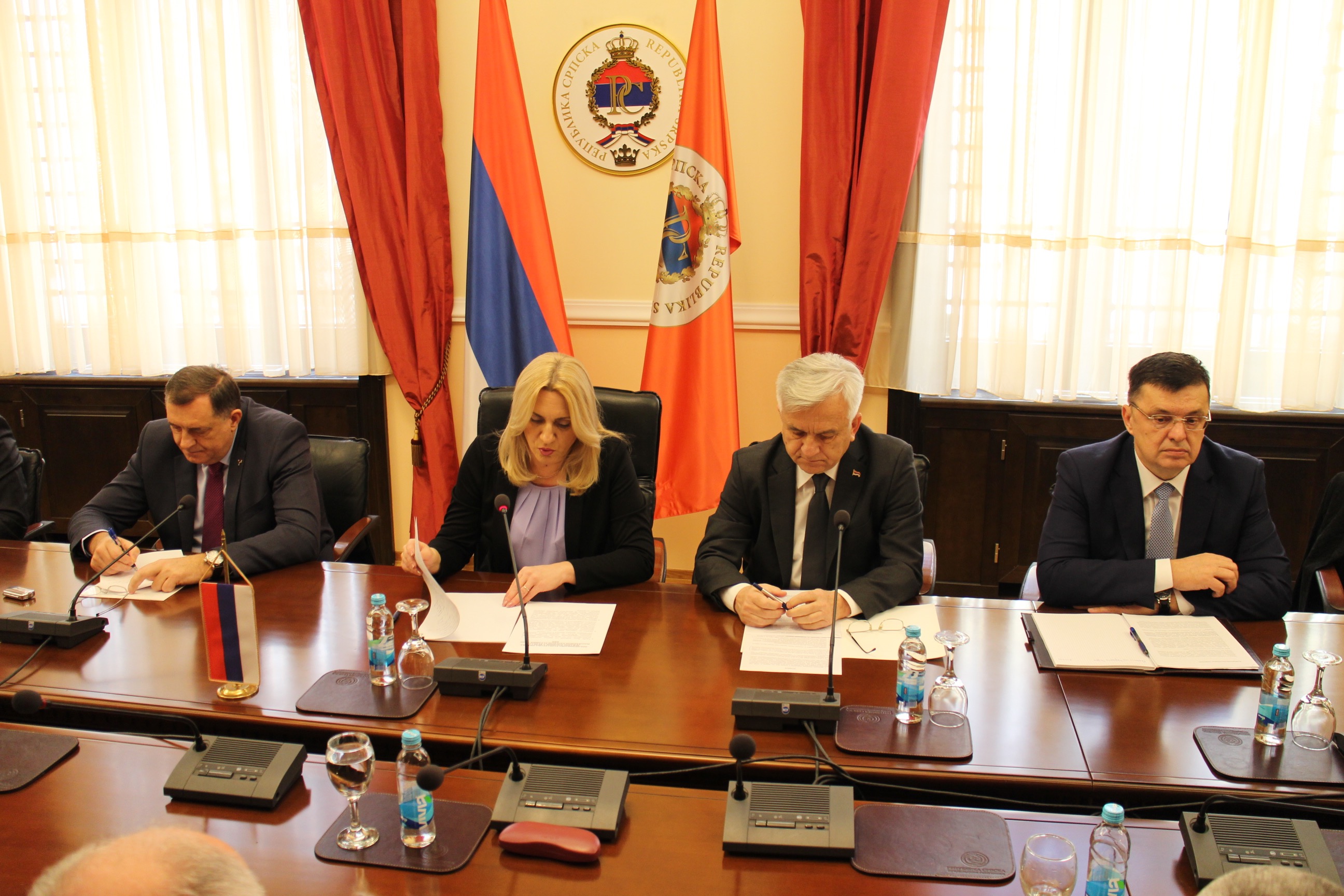
Representatives of Bosnia's Serb-majority entity, Republika Srpska, will halt their work in the decision-making process in the state-level institutions, RS President Zeljka Cvijanovic said Wednesday, adding that this decision will be in force until foreign judges are expelled from the Constitutional Court of Bosnia and Herzegovina.
Cvijanovic addressed a press conference following a meeting that gathered the RS officials and representatives of the political parties represented in the RS parliament, in Banja Luka, the entity's administrative centre. The only topic discussed in the meeting was a recent decision of the Constitutional Court, which assessed that the public land law in that entity was – unconstitutional.
“The participants agreed that the RS representatives in the institutions of Bosnia and Herzegovina will halt their work in the decision-making process on any matter that falls under jurisdiction of Bosnia and Herzegovina's bodies, until adoption of new Law on the Constitutional Court of Bosnia and Herzegovina, which wouldn't have foreign judges in its composition,” said the RS president.
Bosnia consists of two semi-autonomous regions, Republika Srpska and Federation, with both entities and three major ethnic groups - Bosniaks, Serbs and Croats, being equally represented at the state-level of authority. Each major group is entitled to veto any decision with reference to the vital national interest.
Cvijanovic also said that this matter requires an urgent session of the RS parliament, which would discuss the Constitutional Court's decisions that have “deeply interfered with the identity of RS" and now even its "territorial and property matters."
Acting upon motion of seven Bosniak delegates in the RS Council of Peoples, the Constitutional Court ruled that Article 53 of the RS Law on Agricultural land was unconstitutional.
The court decision triggered fierce reactions among the Serb leadership, with Milorad Dodik, the leader of strongest Serb party – the SNSD, saying that Bosnia's judiciary was doing nothing but trying to impose “illegal solutions” against Republika Srpska.
Kakvo je tvoje mišljenje o ovome?
Učestvuj u diskusiji ili pročitaj komentare





 Srbija
Srbija
 Hrvatska
Hrvatska
 Slovenija
Slovenija







